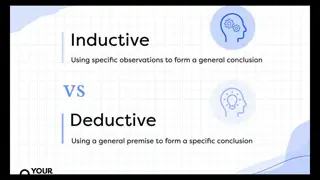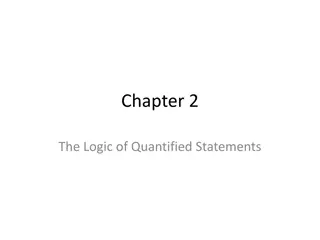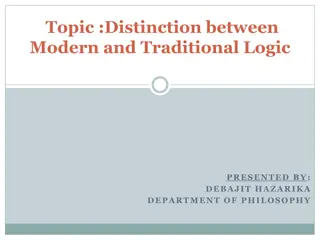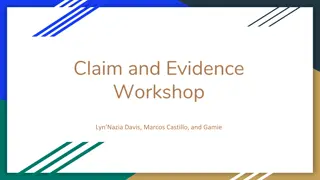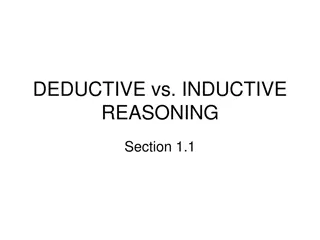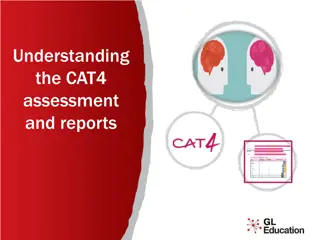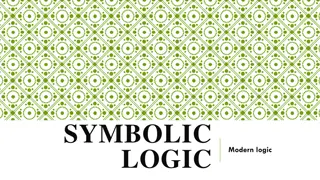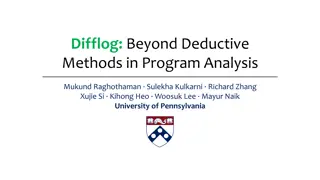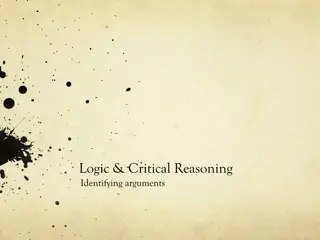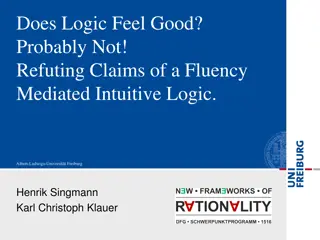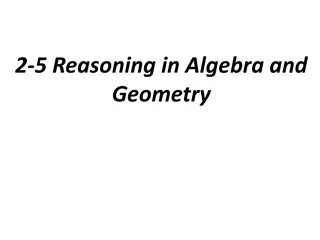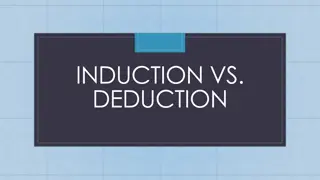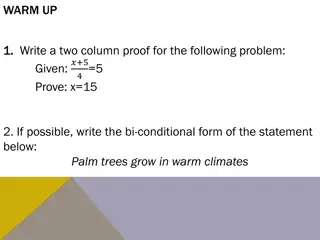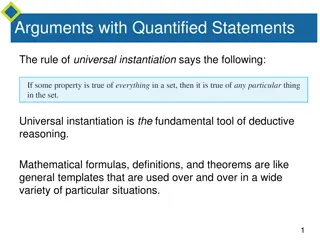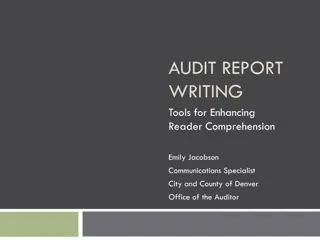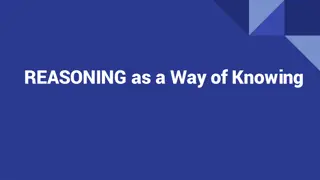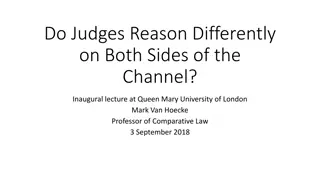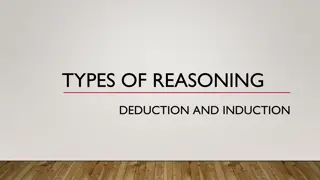
Mastering Deductive Reasoning: Laws of Detachment and Syllogism
Dive into the world of deductive reasoning using the Law of Detachment and Law of Syllogism. Understand how to logically derive conclusions from given statements or facts, empowering you to make valid deductions. Explore examples applying these laws in practical scenarios. Enhance your critical thinking skills with this essential tool in logical reasoning.
Download Presentation

Please find below an Image/Link to download the presentation.
The content on the website is provided AS IS for your information and personal use only. It may not be sold, licensed, or shared on other websites without obtaining consent from the author. If you encounter any issues during the download, it is possible that the publisher has removed the file from their server.
You are allowed to download the files provided on this website for personal or commercial use, subject to the condition that they are used lawfully. All files are the property of their respective owners.
The content on the website is provided AS IS for your information and personal use only. It may not be sold, licensed, or shared on other websites without obtaining consent from the author.
E N D
Presentation Transcript
2-4 Deductive Reasoning Objective: To use the Law of Detachment and the Law of Syllogism
Deductive reasoning Deductive reasoning (sometimes called logical reasoning) is the process of reasoning logically from given reasoning logically from given statements or facts to a conclusion. statements or facts to a conclusion. (sometimes called logical reasoning) is the process of Essential Understanding Essential Understanding: : Given true statements, you Given true statements, you can use deductive reasoning to can use deductive reasoning to make a valid or true make a valid or true conclusion. conclusion.
Using the Law of Detachment, what can you conclude from the given true statements? 1) Given: If a student gets an A on a final exam, then the student will pass the course. Felicia got an A on her history final exam. The second statement matches the hypothesis of the given conditional. By the Law of Detachment, you can make the conclusion that Felicia will pass her history course.
2) The second statement matches the hypothesis of the given conditional. By the Law of Detachment, you can make the conclusion that 3)Marla is not safe out in the open. The second statement doesn t match the hypothesis of the given conditional, so there is no conclusion possible.
Another law of deductive reasoning is the Law of Syllogism, which allows you to state a conclusion from two true conditional statements when the conclusion of one statement is the hypotheses of the other statement. The conclusion of the first statement is the hypothesis of the second statement, so you can use the Law of Syllogism to make a conclusion.

